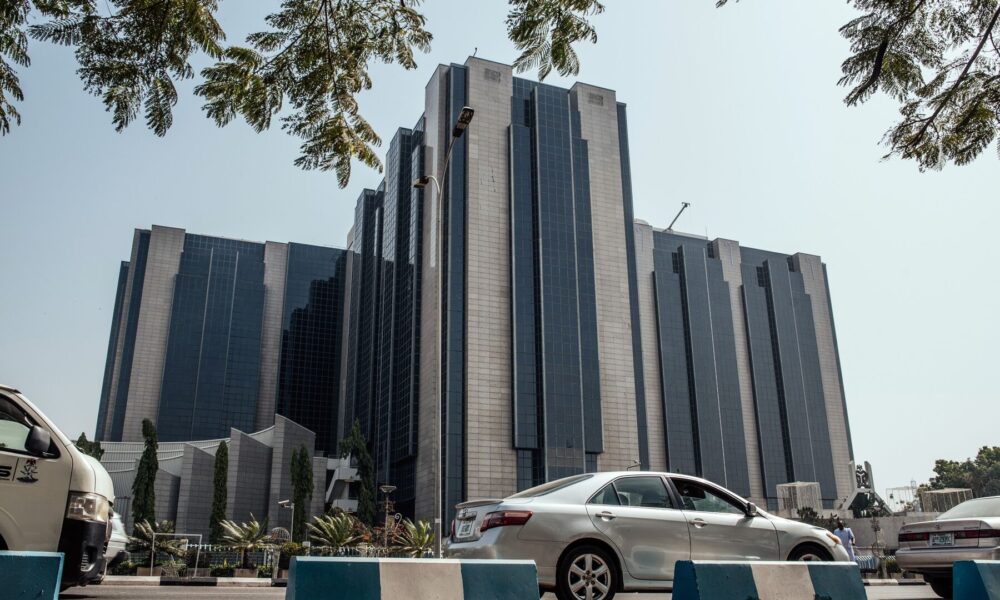Banking Sector
CBN Governor Hails IFRS Adoption as Catalyst for Nigerian Financial Sector Growth

The Governor of the Central Bank of Nigeria (CBN), Mr. Olayemi Cardoso, has lauded the adoption of the International Financial Reporting Standards (IFRS) as a pivotal factor in the growth and expansion of Nigeria’s banking and financial sector.
Speaking at the Regulatory Roundtable on the Implementation of ISSB’s Sustainability Standards in Abuja, Cardoso emphasized that the integration of these global standards has significantly enhanced the credibility, transparency, and competitiveness of Nigerian banks on the international stage.
The event, organized by the Financial Reporting Council (FRC) of Nigeria, brought together key stakeholders to discuss the impact of IFRS on the nation’s financial reporting and the future of sustainability standards in the country.
In his address, Cardoso highlighted the tangible benefits that the IFRS framework has brought to the Nigerian financial system, particularly in terms of growth, both domestically and globally.
“The adoption of IFRS has been a game-changer for our financial sector,” Cardoso stated. “It has not only improved the quality and comparability of financial statements but has also opened up new avenues for foreign investments and credit facilities, thereby strengthening the overall health of our banking system.”
According to the CBN Governor, Nigerian banks have leveraged the transparency and consistency offered by IFRS to expand their operations beyond national borders.
Today, over 55 subsidiaries, three branches, and four representative offices of Nigerian banks are operational across 30 countries, underscoring the global reach of Nigeria’s financial institutions.
Cardoso noted that the IFRS framework has enabled Nigerian companies to produce globally competitive financial statements, a factor that has been instrumental in attracting foreign investments into the economy.
He expressed optimism that the forthcoming implementation of the IFRS S1 and IFRS S2 standards in Nigeria would further enhance the country’s financial reporting landscape.
The IFRS S1 and IFRS S2 standards, which focus on sustainability-related financial disclosures and climate-related disclosures, respectively, are expected to play a crucial role in ensuring that Nigerian entities adequately disclose information about their environmental and social impacts.
Cardoso affirmed that the CBN is committed to ensuring that these standards are successfully implemented, thereby reinforcing the integrity and sustainability of the financial system.
“The CBN has been at the forefront of promoting transparency and accountability in financial reporting,” Cardoso said. “By adopting and implementing these new sustainability standards, we are not only safeguarding our financial system but also contributing to a more sustainable and responsible business environment in Nigeria.”
He also pointed out that sustainability reporting has become an integral part of financial disclosures in the banking sector, with banks required to report on their environmental and social impacts.
The CBN, in collaboration with the Bankers’ Committee, has emphasized the importance of sustainable banking practices, which have positively influenced how Nigerian banks conduct their operations both locally and internationally.
Cardoso acknowledged the challenges associated with implementing new standards, particularly those related to climate-sensitive disclosures.
However, he expressed confidence that with the right technical expertise, data, and resources, Nigerian entities would successfully navigate these challenges and set a benchmark for other countries in the region.
The CBN Governor’s remarks were echoed by the Executive Secretary and Chief Executive of the FRC, Dr. Rabiu Olowo, who commended Nigeria’s leadership in adopting the ISSB standards.
He emphasized the need for collaboration among regulators and stakeholders to ensure the successful implementation of these standards, which he described as critical to enhancing transparency, consistency, and informed decision-making in the country’s financial reporting practices.